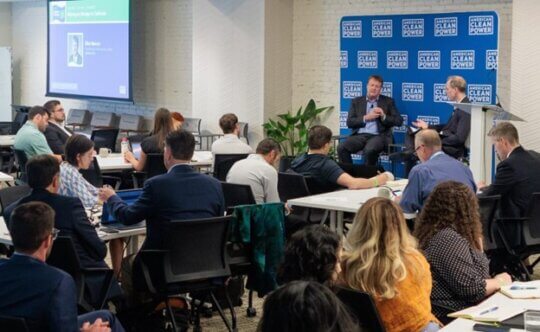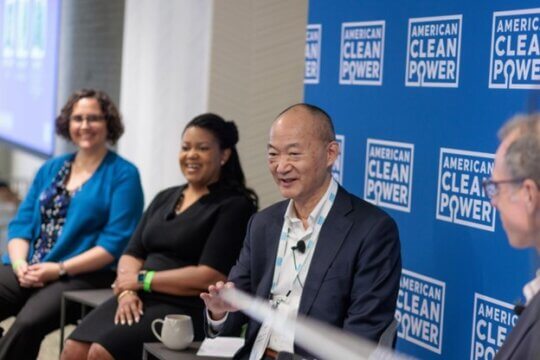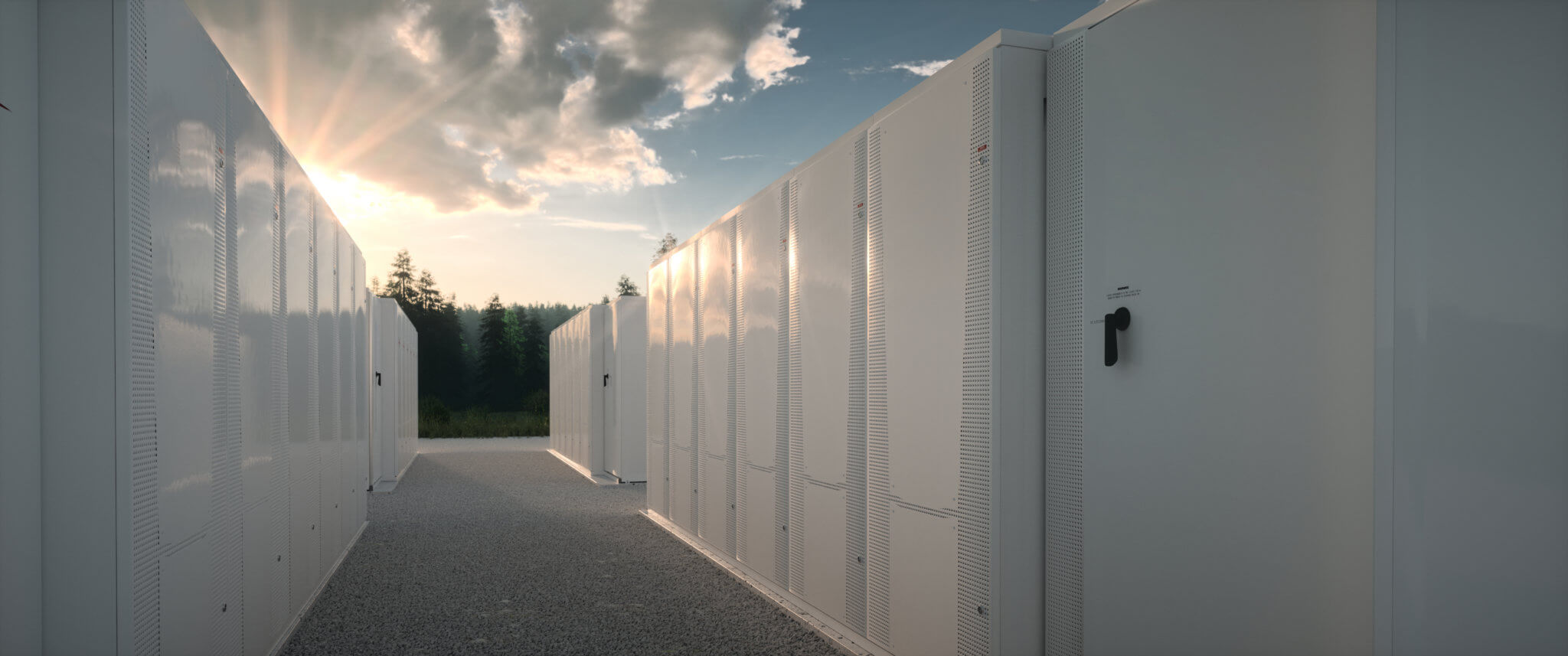Exploring a New Era at ACP’s Energy Storage Policy Forum
It’s that time of the year again: the Energy Storage Policy Forum (ESPF) is almost here! As thousands of power sector policy professionals descend on Washington, D.C. this February, I’m excited to plan the second annual Policy Forum under the banner of the American Clean Power Association and my ninth altogether since it started under the U.S. Energy Storage Association.
A Policy Forum Like No Other
This year’s February 15th event will be a celebration. For almost a decade, the energy storage industry has advocated a federal investment tax credit (ITC) specifically for energy storage. And we did it! We finally have a storage ITC with the enactment of the Inflation Reduction Act (IRA) last summer. And the U.S. energy storage industry has made other strides too: in the last decade, we secured nine state deployment targets, over $1 billion in state incentives, the Federal Energy Regulatory Commission (FERC)’s landmark Order 841, and a variety of RTO/ISO updates to market products.
So, what’s left to do? Did we solve all the problems? (Hint: nope!) This year’s Policy Forum looks ahead at developing opportunities for energy storage in a post-IRA world.
What We’ll Discuss: State, Federal, Industry and Markets Conversations
The state policy conversation at the 2023 Policy Forum will focus on how restructured states—that is, states where choices for electric reliability are made by regional markets, rather than utilities and state regulators—can make policy progress on storage. State policymakers know they need energy storage to achieve their clean energy mandates. While storage deployment targets have been effective for inducing procurements in vertically structured states, they do not translate well in restructured states, where market mechanisms are the desired basis for resource choices. We need new answers “beyond targets” in those states. I’m thrilled to explore this challenge with David Sandbank, Vice President of NYSERDA, which has proposed a novel Indexed Storage Credit program; Abe Silverman, General Counsel for New Jersey Board of Public Utilities, which has proposed an innovative Clean Capacity Credit program; and Carrie Zalewski, Chair of the Illinois Commerce Commission, where policymakers face similar challenges and are considering versions of these ideas. (For those of you attending the National Association of Regulatory Utility Commissioners’ Winter Policy Summit, we’ll be just a few blocks away—pop out and join us!)
The electricity markets conversation at the 2023 Policy Forum will pick up where the state policy conversation leaves off, discussing how RTOs/ISOs are shaping opportunities for storage. While storage began in ancillary services markets and has recently entered energy markets, the role of storage in resource adequacy and capacity markets remains contested. Market designs will continue to evolve for a grid with greater deployments of storage and renewables, the pace of which will be increasingly determined by interconnection queues. I’m very excited to geek out on where markets are going with FERC Commissioner Allison Clements as well as bringing leading RTO/ISO experts–like Walter Graf from PJM and Anna Foglesong from MISO–onstage to talk through their own market’s evolution and resource adequacy challenges.
The federal policy conversation at the 2023 Policy Forum will broaden the lens to what is happening in the wake of the storage ITC. The energy storage industry still faces large-scale challenges including implementing the IRA, combating rising global trade tensions, and promoting domestic supply chains and infrastructure. And the post-IRA politics of clean energy are changing, in part due to a new period of divided government. On that last point, I am pleased that Jason Grumet, founder of the Bipartisan Policy Center and ACP’s new CEO, will offer his vision for the storage and renewables industries and lead our keynote policy dialogue on the 118th Congress.
Finally, I think it will be important to take stock of the evolving relationship between the U.S. energy storage industry, policymakers, and other power sector stakeholders. In my November 2022 blog I wrote about how the storage industry has gone from struggling to get policy attention and market traction to now post-IRA having “good problems” that come with overwhelming demand. With great power comes great responsibility, and I’m honored to have longtime industry veterans like Kiran Kumaraswamy of Fluence and Polly Shaw of Plus Power join me onstage to use our insights from the last decade of our advocacy to forecast the next decade of advocacy ahead for the energy storage industry.
Of course, most of all, there will be all of you and your colleagues—connecting with each other as much as our esteemed speakers. I expect a jubilant mood. So come join us this February 15—register today!

Elliot Mainzer, CEO of the California ISO, at the 2022 Energy Storage Policy Forum.

Former FERC Commissioners Norman Bay and Colette Honorable and Deputy Director for Policy Christy Walsh at the 2022 Energy Storage Policy Forum.

